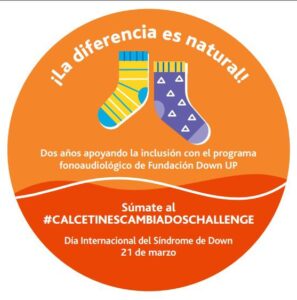This chair is intended to develop knowledge in the areas of transportation infrastructure and road safety by encouraging innovation and the sustainability of operations.
In order to promote an expansion of knowledge, good practices and innovation in relation to transportation infrastructure management, the Abertis Group, VíasChile and the Pontifical Catholic University of Chile (abbreviated as PUC in Spanish) awarded the “Abertis Chair” prize, which recognizes the work of undergraduate and graduate students in the subjects of transportation, road safety and sustainable mobility.
Present at the ceremony were Andrés Barberis, Chief Executive Officer of the VíasChile Group; Professor Juan de Dios Ortúzar, Chair Director; Loreto Valenzuela, Engineering Dean; academics of the university, panel members and students. Juan Carlos Muñoz, Minister of Transportation and Telecommunications; Georgina Flamme, Director of the Abertis Foundation; and Ignacio Sánchez, President of the Catholic University, also attended remotely.
Emphasized during the ceremony was the fact that in an increasingly more complex and interdependent world, businesses need to know the progress that science and new technologies make available to business management. And there lies the importance of this initiative for VíasChile as it represents a space for new ideas and proposals to create transportation infrastructure and road safety projects at the service of society.
In his video, Minister Muñoz expressed gratitude for the invitation to participate in this eighth ceremony of the “Abertis Chair,” and he emphasized that “this award is focused on transportation and infrastructure management services and road safety and sustainable mobility services, both of great importance to the Ministry. Sometimes thinking creatively is where one can find innovations and interesting solutions that are part of what inspires us today.” He also said that the chair is very much in line with the work of his ministry, both in reducing the number of deaths from road accidents and in making this system more sustainable.
Andrés Barberis also underscored that “the world has changed significantly, which has translated into new trends in the sphere of transportation, infrastructure and road safety.
“In this respect, the Abertis Chair is a tool apt for undertaking those stimulating and urgent challenges because it invites you to think about new solutions to achieve a smart, safe and sustainable mobility.”
The “Ex Aequo” winners in the category of “Transportation Infrastructure Management” of the “Abertis Chile Prize” were Thomas Guerrero, whose thesis was entitled “Assessment and Correction of Endogeneity Problems in Discrete Choice Models,” and Filipe Temten, whose research project was entitled “Inhabited Infrastructures: Projecting new relationships between segregated transport routes and urban fabric.”
The winner in the “Road Safety” category was Sandy Bolufé, with his doctoral thesis on “Design and evaluation of adaptive beaconing algorithms for cooperative vehicular safety systems.”
The winners will become finalists for the “International Abertis Prize” that is awarded annually from among the winners from all countries where this contest is held.

